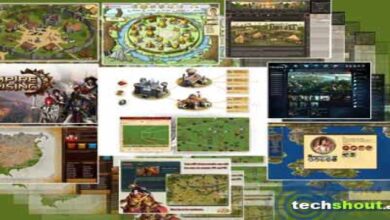Fear & Hunger: A Game of Moody Atmosphere and Brutal Combat
Introduction
Fear and Hunger is an intriguing RPGmaker game that has captivated players with its unique atmosphere and intense gameplay. The combination of the game’s art style and John Wolfe’s playthrough immediately drew me in, and I had high expectations for it.
Conflicting Elements: A Rogue-like RPG
However, the game suffers from an internal conflict. It clearly incorporates rogue-like elements such as a rearranging dungeon, chance-based mechanics, and unforgiving combat. While the intention is for players to learn from trial and error, the game’s demand for perfection hinders this process. How can I learn from my mistakes if I have to start from scratch every time? Perhaps it would be beneficial to reevaluate the incorporation of rogue-like mechanics within an RPG context, considering the prevalence of more forgiving rogue-likes.
The Problem Trifecta: No Save + Lethality + RNG
In my view, this game faces a triple threat: the absence of a save system, high lethality, and reliance on chance. Of these issues, the lack of a save system is the most pressing. The simplest solution would be to introduce a consistent save system, not necessarily allowing players to save at any time, but following a model akin to Resident Evil. This limited-save approach would encourage players to carefully manage their progress while maintaining the game’s intense atmosphere.
Mitigating Lethality with Ample Saving Opportunities
Providing more frequent opportunities to save would alleviate the problem of brutal lethality. I appreciate the game’s severity, where every battle poses a significant threat. However, the current implementation presents challenges that could be more tolerable with the ability to save more often. For instance, every enemy possesses the ability to break bones, sever limbs, or inflict debilitating status effects. Some enemies can combine multiple statuses, making victory irrelevant if the player cannot immediately cure the effects. A single misstep or uncontrollable event during combat, such as a missed attack or an enemy strike after death, can spell the end of the player’s journey. If there were more occasions to save, players could rehearse combat scenarios until they achieve optimal outcomes. As it stands, players are confined to highly restricted tactics, such as focusing solely on attacking the torso or head to minimize risk, discouraging experimentation due to the dire consequences of allowing even a single enemy turn.
Coin-Flip Mechanics and Scarce Resources
The game’s reliance on coin-flip mechanics for item discovery further compounds the problems. The items necessary to counter the aforementioned status effects are incredibly rare, and if they are depleted, the only hope lies in finding the alchemy book for crafting them. However, if luck does not favor the player, obtaining this book becomes unlikely, sealing their fate to bleed out or succumb to poison in future battles. The same can be said for books, gear, and even saving opportunities, which by this point goes without saying. If luck does not favor the player throughout the game, the likelihood of death increases exponentially. To exacerbate matters, the one guaranteed save in the game is protected by an enemy with an instant kill attack, which does not rely on chance. If the game allowed for more frequent saving, these situations would be less dire, providing a buffer against negative consequences and the chance to retry failed coin-flips.
Advocating for a Balanced Save System
I must admit, I am advocating for the practice of save scumming, as it is far more tolerable than the current state of the game. Despite the aforementioned issues, I still hold a great affinity for Fear and Hunger and hope to see its success. Implementing a more favorable save system would greatly contribute to the game’s overall enjoyment and popularity.



![Survivor.io Tier List: Best Weapons & Skills[September 2023]](https://chineseportal.net/wp-content/uploads/2023/09/survivor-io-all-evo-weapons-1-390x220.jpg)